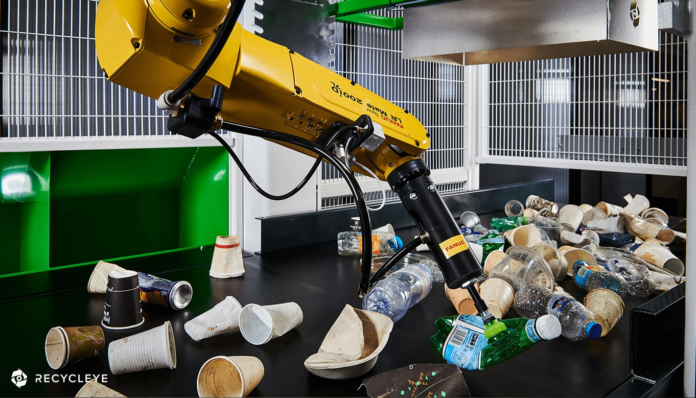Plastic waste has become a global environmental challenge, with millions of tons of plastic ending up in landfills and polluting our oceans every year. Sustainable plastic recycling is essential to reduce plastic pollution and minimize the impact of plastic waste on the environment. Robotics has emerged as a promising technology in the field of plastic recycling, offering innovative solutions and opportunities to address the challenges associated with plastic waste management. In this article, we will explore the latest innovations and opportunities in the intersection of robotics and sustainable plastic recycling.
Plastic Recycling Challenges :
Plastic recycling presents several challenges, including the complexity of plastic waste streams, contamination, and low recycling rates. The different types of plastic and their varying properties make it challenging to sort, separate, and process plastic waste effectively. Contamination from food residue, dirt, and other impurities can reduce the quality of recycled plastic, making it less desirable for manufacturers. Moreover, the low recycling rates, with only a small percentage of plastic waste being recycled, contribute to the accumulation of plastic in landfills and oceans.
Role of Robotics in Plastic Recycling:
Robotics has the potential to revolutionize plastic recycling by automating and optimizing various processes, from sorting and separation to processing and manufacturing. Robots can effectively sort and separate plastic waste based on its type, color, and composition using advanced sensors, computer vision, and machine learning algorithms. This can improve the quality and purity of recycled plastic, making it more suitable for manufacturing high-quality products. Robots can also automate processes such as shredding, washing, and pelletizing, reducing the need for manual labor and increasing efficiency.
Innovations in Robotics for Plastic Recycling :
Several innovative robotics technologies are being developed and deployed in plastic recycling. One such innovation is the use of robotic arms for sorting and separating plastic waste. These robotic arms can accurately identify and pick different types of plastic waste from a conveyor belt, using sensors and computer vision. They can work at a high speed, sorting and separating plastic waste based on their properties, improving the quality and purity of recycled plastic.
Another innovation is the use of drones for plastic waste collection and monitoring. Drones equipped with cameras and sensors can fly over landfill sites or polluted areas, capturing images and data to identify plastic waste hotspots. This information can be used to optimize waste collection routes, reduce transportation costs, and improve the efficiency of plastic waste management.
Robotics is also being used in plastic waste processing. For example, robots can automate the shredding and washing processes, improving the efficiency and effectiveness of these processes. They can also be used for pelletizing, where plastic waste is converted into small pellets that can be used as raw material in manufacturing. Robots can ensure consistent size and quality of pellets, improving the usability of recycled plastic in manufacturing processes.
Opportunities for Robotics in Plastic Recycling :
The integration of robotics in plastic recycling presents several opportunities. Firstly, it can increase recycling rates by improving the efficiency and effectiveness of plastic waste management processes. Robots can work 24/7, reducing downtime and increasing the throughput of plastic waste processing. Secondly, it can improve the quality and purity of recycled plastic, making it more suitable for manufacturing high-quality products. This can increase the demand for recycled plastic and promote a circular economy where plastic waste is used as a valuable resource.
Furthermore, the use of robotics can reduce the environmental impact of plastic waste management. For example, robots can optimize waste collection routes, reducing transportation costs and carbon emissions. They can also reduce the need for manual labor, which may involve exposure to hazardous materials or work in challenging conditions. Robots can also reduce the risk of contamination, ensuring the quality and safety of recycled plastic.
Also Read: Why You Need to Invest in Facebook Pixel for Your Retargeting Strategy
Conclusion
Robotics presents significant opportunities for sustainable plastic recycling. With their ability to automate and optimize various processes, robots can improve the efficiency, effectiveness, and quality of plastic waste management. Innovative technologies such as robotic arms for sorting and separating, drones for waste collection and monitoring, and robots for processing and manufacturing of recycled plastic are transforming the landscape of plastic recycling. These advancements have the potential to increase recycling rates, reduce contamination, improve the quality of recycled plastic, and minimize the environmental impact of plastic waste management.
As the global plastic pollution crisis continues to escalate, the integration of robotics in plastic recycling offers a promising solution to address the challenges associated with plastic waste management. However, there are still limitations and barriers to overcome, such as the high initial costs of robotics technologies and the need for further research and development to optimize their performance. Collaboration among researchers, industries, policymakers, and other stakeholders is crucial to driving innovation, investment, and adoption of robotics in plastic recycling.

